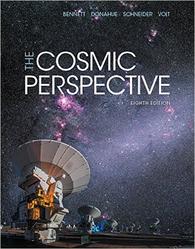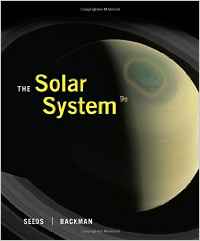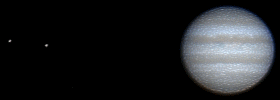|
|
|
_____________________________________________________
Syllabus
This
course will be delivered in-person in McConnell Engineering 304
or online via ZOOM when necessary due to possible Covid-19
restrictions.
If
lectures cannot be delivered in the classroom due to McGill
restrictions or because I am ill or in quarantine, they remain
available as pre-recorded lectures or as ZOOM sessions held at
the normal course lecture times. The pre-recorded lectures are
available in *.mp4
format
via Content
> Lectures Videos (pre-recorded).
I
also provide pre-recorded PowerPoint lectures in *.pptx
format
via Content
> Lectures Powerpoints (pre-recorded)
and
the PowerPoint slide set of the lectures without narration in
*.pdf
format
via Content
> Lectures PDF slideset.
ZOOM
sessions
will be recorded. Links to recorded ZOOM sessions will be
published on the myCourses
site
via the ZOOM link and Lecture Recording in the navigation panel
and via the Content link: Content
> Zoom session recordings.
For the ZOOM sessions I would normally be connecting from my home
in the Laurentians. My home bandwidth is very tight: 600kb/second
upload. Internet quality may sometimes be poor; you should look
to the News
and Highlights
page
to learn of any special connectivity problems that I might be
facing. In any event, the pre-recorded lectures can substitute
for failed in-person or ZOOM lectures
Method
of Evaluation:
You
are not
obliged to
write a term
paper or
to do four
of the six on-line term-work study quizzes,
but
you
must do one or the other to count for 50%
toward
the term-work component of the final grade. You may use only
one choice or the other for the 50% term-work grade.
For most people, the quizzes have given the better raw mark but
as we adjust the marks of the term-papers to the same average as
attained by the cohort of quiz grades, there should be no
disadvantage in writing a paper. Still, even if you write a
paper, you should do the quizzes as they help you focus on the
expectations of the course as they will be tested on the final
exam. The (hopefully) online
final exam will contribute the remaining 50%
to
the course grade.
- Term
paper in lieu of the 4 of 6 study quizzes:
If you choose to submit a short term
paper (with
text body less than 1000-words) in a formal scientific article
style with proper referencing of sources, it will be due on
March
31, 2023.
TAs will be available or assigned to help you with your term
papers. Papers are to be submitted on-line in either *.doc,
*.docx or,
preferred, in
*.pdf
formats. You may submit
your paper via the Navigation Panel > Assignments. Late
papers will be penalized at 10%/week (i.e. 0.5 marks/day to a
maximum of 5 marks/week). If
you do submit a term paper, it is normally that paper that will
count for 50%
of your grade, but if your
quiz grades are higher, we shall accept the quiz grade for term
work.
-
On
the Study Quizzes: There
will be 6
on-line “Study
Quizzes” offered,
a new one given every second week during term; your best
4 can
be counted for the term-work component of grade.
Moreover, there is a practice quiz posted on the myCourses
site for you to try a few
times and to help you become familiar with the method for
accessing and submitting quizzes. This practice quiz will be
left available for your continuing practice throughout the term.
The first of the Study Quizzes (Quiz #1) will be posted on
Friday,
January 20 at 00h00 for
completion by midnight the following Sunday. Exceptionally, you
will be free to do this quiz twice and the best of your 2 grades
will be recorded for Quiz #1. For the following quizzes, you are
given only one try. Thereafter, new quizzes will be posted every
second Friday morning. These quizzes will be open on Feb.
3, Feb. 17, Mar. 10, Mar. 24 and Apr. 7 at
00h00; they close the following Sunday at 23h59, Montreal local
time. That is, the online study quizzes are open for your access
during a period of 72 hours. The last ( April
7 ) of
these serves as a whole-course tutorial review that may be used
as a study aid for the final exam; it will remain open and
available through until the morning of the day of the final
exam. You might wait to do it until a day or two before the
final exam when you have already done some exam preparation.
-
You
should try to review your notes before attempting the online
quizzes as they
are time limited and
you won't have time to look up answers on the web. You will
normally have only 20 minutes (with 3 minutes grace time) for
each study quiz. Students with disabilities who can present a
note from the SAA office to that effect will be given additional
time as they require. You must register with the SAA office who
will normally e-mail me to effect your access to these quizzes.
If you can't follow this schedule for the online quizzes or
would prefer otherwise, you can write the term paper (due
on March 31)
for the term work's 50%. You can no longer, under current
Faculty of Science rules, write the final exam for 100% of your
grade.
-
If
you choose not to write the term paper in favour of the study
quizzes, the best 4 will contribute 50% to your final grade.
Each on-line study quiz will require you to be
computer-connected to the myCourses
website,
best through a McGill wireless or LAN connection or via McGill
VPN, during a period of 20 minutes, anytime, within the 72-hour
time window which starts the Friday morning at 00h00, remaining
open until midnight the following Sunday. You need only log-on
within that accessibility window to access the 20-minute quiz.
Each quiz will comprise 30 multiple-choice, true-false or
ordering questions. You should try the practice quiz a few times
in order to learn how to use the system. Note:
An
online
quiz cannot be
re-opened for those who miss a quiz during
the 72-hour time windows for any reason at all (including severe
illness, dogs that have eaten your computer – anything!).
There are, however, 6 opportunities to take quizzes and you only
need 4 completed for a full term-work grade. If you have
continuing technical problems while trying to do the online
quizzes, consider submitting a term paper instead on March
31;
it will be preferentially counted toward the term work. Use the
practice quiz as often as you like in familiarizing yourself
with the procedures.
-
On
the Final exam The
final exam will be served online and scheduled. The final
exam contributes 50% to
your final grade. Note,
you can no-longer write a final exam for 100% of your grade: Do
the quizzes or write a term paper!
You must write the
final exam to receive a grade in the course. If
you know that you cannot sit the exam, you should withdraw from
the course now. This
year's online final format: The
exam will use multiple-choice, true-false and matching questions
mixed, with 20 written response short-anwer questions. It will
be scheduled for a 180-minute completion time with an additional
90-minute over-run grace period that should accommodate any
internet connectivity problems. It will be accessible during a
window of 72 hours but your time “on quiz” will be
limited to the 180 minutes plus 90 minutes of grace/overrun
time. If connectivity fails, you should be able to restart
myCourses and “continue” the quiz from where you
left off.
-
On
final course grades... Class average final grades
during past years have fallen into a range of high B to
low B+, about 75%+. In order to achieve this average,
grades may be fairly curved but only upward if necessary to
obtain the 75% class average. Given the online format and the
extended time allowed according to McGill rules for online
exams, it is not expected that any upgrading will be necessary.
-
Course
expectations are not extremely high in the sense that this
course traditionally offers somewhat higher average
grades than most in-program courses. However, the grading is
strict, fixed and non-negotiable. Typically, in past years, more
than 25% of students have received a full A grade
and another 25% an A- grade. Almost nobody fails
the course if they do the required tasks – term paper or 4
study quizzes + final -- though some students have managed to
get D grades. Note that a D grade
obtains a Fail if the course is taken Pass/Fail
but
I expect that with the curving no student who has honestly
applied themselves to the course will receive a grade lower than
C.
Students
who can and who fear for their grade are encouraged to consider
taking the course on a Pass/Fail basis if their program so
permits. You should note, however, that a D grade according to
the normal grading scheme would qualify as a Fail on the
Pass/Fail basis. In defense against a D-Fail, you should note on
your final exam that you are taking the course Pass/Fail if you
are.
You
normally have to register for the course as being Pass/Fail
before the Add/Drop deadline mid-January. See your program
advisor.
- Textbooks...
No textbook is required for the successful completion of this
course. The course Noteset suffices but, should you be
interested in having a good reference for the course, I suggest,
first of all, The Cosmic Perspective
(Bennett et al.). Alternatively, you might consider The
Solar System (Seeds and Blackman)
-
|

|
- Cosmic
Perspective
ISBN:
9780134874364,
0134874366
Format:
Paperback, eBook
Publisher: Pearson Education
Pub.
Date: Jan. 2020
Edition
Number: 9
Online
edition from VitalSource
|

|
- The
Solar System
ISBN:
9781305804562, 1305804562
ISBN-10:
1305120760
Paperback,eBook
Publisher:
Brooks Cole
9 edition (January, 2016)
Online
edition from VitalSource
|
|
|
|
|
|
- The
Cosmic Perspective has been ordered; it should be
available in paperback at the McGill bookstore and at Paragraph
Books on McGill College in its latest Edition 9. Editions 4
through 8 used in term courses at McGill recently and used
copies might be available... The
Solar System has not been ordered for the class.
While the information about the Universe, Solar System and
Planets is continually being updated, used earlier editions of
these texts are still useful references for the course. Neither
is “required”. The Online editions may well serve
you.
-
Help/Questions
regarding course -- “on-line office hours”:
-
“Office
hours” are
on-line. I can usually respond to your questions within a day.
Please use the following address for course-related e-mail as
this will separate course e-mail from my normal clutter:
terrestrial.planets@gmail.com
-
"Desperate?...
Call me! I am available for desperate calls.”
-
Olivia
Jensen
F.D. Adams #130D
tel: office: 514 398-3587 home:
450 224-2721
-
Following
each online class, I shall try to remain available for ½
hour to answer pressing questions. Also, the last 10 minutes of
each class will be reserved for open questions from the class --
please feel free to remind me when the clock ticks to 12h40.
Also, I encourage you to e-mail questions to me during the
evening preceding the next class. I will choose to answer one of
these questions before opening to questions from class. I would
prefer that you contact me via terrestrial.planets@gmail.com
rather
than asking the TAs for clarification of course materials but as
you may have some need of advice or help from them, their e-mail
address links are here:
-
TAs:
-
Web
links: Olivia
Jensen will maintain a listing of links to the various Worldwide
Web sites she might mention in this course on the “News
and highlights” course
page. You might also look to the “Websites”
page.
-
Course
URL node addresses:
-
https://www.eps.mcgill.ca/~courses/c180/2023-Winter
-
http://132.206.152.32/~olivia/TP/2023-Winter/
-
https://132.206.152.12/~olivia/TP/2023-Winter/
Not
updated daily....
-
-
The
fine print ( read this carefully !):
-
McGill
University values academic integrity. Therefore, all students
must understand the meaning and consequences of cheating,
plagiarism and other academic offences under the Code of Student
Conduct and Disciplinary Procedures (see
www.mcgill.ca/integrity
and
Rights
and responsibilities at a glance for more information).
In
accord with McGill University’s Charter of Students’
Rights, students in this course have the right to submit in
English or in French any written work that is to be graded.
L'université
McGill attache une haute importance à l’honnêteté
académique. Il incombe par conséquent à tous
les étudiants de comprendre ce que l'on entend par
tricherie, plagiat et autres infractions académiques,
ainsi que les conséquences que peuvent avoir de telles
actions, selon le Code de conduite de l'étudiant et des
procédures disciplinaires (pour de plus amples
renseignements, veuillez consulter le site
www.mcgill.ca/students/srr/honest/
).
Conformément
à la Charte des droits de l’étudiant de
l’Université McGill, chaque étudiant a le
droit de soumettre en français ou en anglais tout travail
écrit devant être noté.
-
- The
Lecture Series
First
lecture (January 4 will be recorded): Course outline,
introduction of self and screening of short videos:
1.
Harvard
Commencement – a
film that should bring you to feel that you are already as
knowledgeable about seasons
as
Harvard graduates: A
private universe.
An explanation of seasons
and Earth's orbit.
More: Do you know that the shortest day of the year does not
include both the latest sunrise and earliest sunset? See the
cycles
of the Sun and Moon.
Do you know how
to tell time and read a calendar?
Also here!
This interesting (and correct) video was produced by the VSauce
guys.
2.
Cosmic
Collisions – a
NASA/AMNH film. I usually play an authorized copy of this video
at the start of class but this year, I cannot offer you an online
version. Otherwise, you might look for this video on the web...
but note, several different videos with this title are published
on YouTube;
they are mostly interesting and relevant but I have not been able
to find this particular video in the group. This is the trailer
to the AMNH film
and the only reference I could find on YouTube.
3.
For
homework, I suggest you take the time to view the video entitled
Different
Worlds (BBC
series The Planets); BBC sometimes pulls this video from all the
internet sites that I can find. As of the beginning of this
course, it is accessible. You might also view this mystical
ride through the Universe: The
known universe by AMNH.
January
9 to April 13 (25 classes): (Note, the order is
followed -- it is the same ordering as in the course noteset --
but each listed topic does not correspond to a single or whole
lecture.)
Creation
hypotheses, the age of Earth (and the Solar System)
Suggested
online videos: The
Big Bang to the Present Day,
The
Big Bang ,
The
Expanding Universe on
YouTube. The concept of distance is complicated: see Faster
Than The Speed Of Light (1): The Universe - Created Out Of
Nothing? and
Faster
Than The Speed Of Light (2): The Expanding Universe
on
YouTube for an attempt at an explanation of the “origin,
age and size
” of
the Universe. You might look into the Cassiopea
Project (on-line
Science education) which served the first video in the list
preceding.
How
do we “ know”
the
“ age
of the Universe ”?
Hubble
constant and age of the Universe
Stellar
evolution – A cute cartoon: The
Largest Stars; Stephensen
2-18
The
condensation of the solar nebula – formation of the Solar
System. Suggested online video: The
Expanding Universe (The Planets) in
6 parts on YouTube; you may access them now with search string [
1of6 The expanding universe the planets ] Some of this video is
dated in its information... (e.g. a 12 billion year age for the
Universe) but for the most part, the story holds.
Early
thermal evolution and differentiation of Earth and the
terrestrial planets
The
present Solar System (a quick tour of the planetary system);
Exoplanets.
Asteroids,
comets, meteorites and the recently discovered and now visited
Kuiper objects
Hazards
– cometary and asteroid impacts on Earth
Orbital
dynamics – Kepler's Laws
Study
week Feb 27 and March 3: lectures cancelled
Most
of the Universe is Missing – A BBC Video
(Is
Newtonian gravity the problem or is there a lot of unseen dark
matter?). A precis of the transcript of this BBC Horizon program
is linked here
.
This video will be shown in its entirety in class.
Dynamics
of the solar-planetary system: orbits, rotations, spin-orbit
coupling. The moon, tides (body and ocean) and the history of
Earth's rotation
Rotational
dynamics, precession, nutation and wobble
Physical
properties of the terrestrial planets: isostasy, gravity field,
density distribution, thermal regime, etc.
Planetary
magnetism: evidence for a fluid core and the self-excited
geodynamo
Tectonics,
the effect of heat flow, thermal conduction and convection on
Earth and other planets and moons
Seismology
and the structure of Earth's interior, the Moon's interior, Mars
interior?
Overview
of the geological and geophysical differences among the
terrestrial planets
A
review tour of the planets and moons of the Solar System and
beyond.
Current
space missions – a review of what is happening now.... a
web tour and discussion...
Astrogeology,
mineralogy and surface condition of the terrestrial planets and
moons of the giants. What can we infer about the interiors of
the hard-surfaced bodies of the Solar System from surface
features... The search for life elsewhere in the Solar System
Lectures
are cancelled on April 10; last lecture April 13 with
another video: Video
2 of The Planets Series – Terra Firma (BBC/A&E)
If
still available online this video should be a useful overview
preceding the final exam...
The
final exam: Not yet scheduled – I may have no influence
whatever on the scheduling.
|



